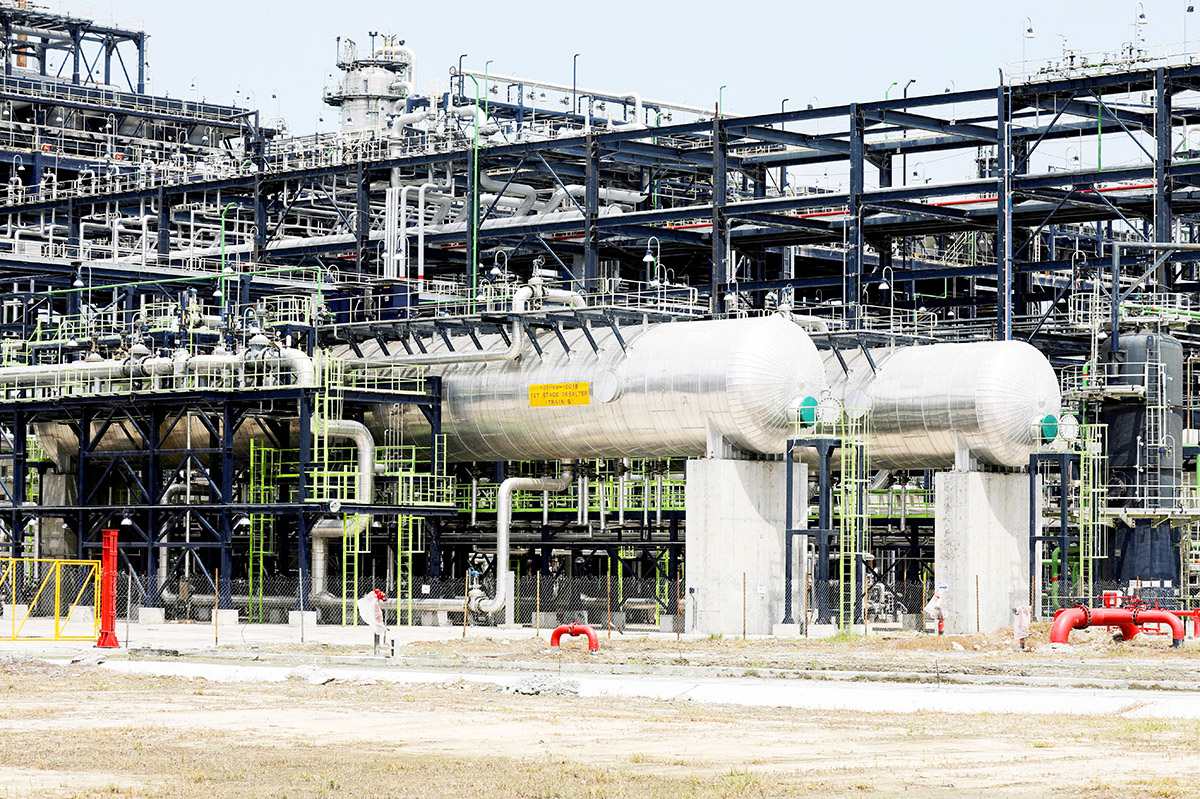The Nigerian federal government has hailed the start of petrol production at the 650,000 barrels-per-day (bpd) Dangote Refinery in Lagos, marking what it describes as a significant step toward the country’s industrial resurgence.
The Minister of Finance and Coordinating Minister of the Economy, Wale Edun, called the development an “epoch-making” moment, emphasising that it signals Nigeria’s return to local refining after decades of reliance on imports.
“This is the resumption of Nigeria’s march towards industrialisation. It represents a return to local refining and supply of petroleum products in the Nigerian market. We have achieved today what has eluded us for decades,” Edun stated during a government delegation visit to the refinery on Sunday.
Accompanied by Dr. Zacch Adedeji, Executive Chairman of the Federal Inland Revenue Service (FIRS) and Chairman of the Technical Sub-Committee on naira-based crude sales to local refineries, Edun highlighted that this initiative is expected to ensure energy self-sufficiency in Nigeria, ending the perennial fuel shortages and long queues that have plagued the country.
Edun praised Dangote Industries Limited and its President, Aliko Dangote, for their efforts in bringing Nigeria back to refining capacity, nearly 30 years after the country ceased local refining operations. He noted that the refinery’s capacity is not only sufficient for domestic needs but will also produce surplus for export, bolstering Nigeria’s foreign exchange earnings.
“Today, you have taken an important step towards energy self-sufficiency. We commend Dangote for exemplifying the Nigerian spirit and patriotism in making this refinery a reality, despite widespread scepticism,” Edun added.
The commencement of petrol production from the Dangote Refinery, the largest single-train refinery in the world, is expected to transform Nigeria’s energy sector. According to Devakumar Edwin, Vice President of Oil and Gas at Dangote Industries, the facility has the capacity to process 52,000 barrels of crude per day into more than 54 million litres of Premium Motor Spirit (PMS). This will not only meet 100 percent of Nigeria’s domestic demand but will also support export.
Edwin further noted that the refinery is set to reduce Nigeria’s foreign exchange demand by 40 percent, primarily by cutting down on fuel imports and generating foreign revenue through exports. “This facility will boost forex generation through exports and significantly reduce the country’s reliance on imported fuel,” Edwin said.
He also assured that the refinery’s loading of petroleum products through its jetty, coupled with its self-sufficient marine facility, would prevent congestion in the surrounding area, addressing concerns about tanker gridlocks similar to those seen in Apapa, Lagos.
Impact on Petrol Prices and Scarcity
In line with the provisions of the Petroleum Industry Act (PIA), Edun confirmed that petrol prices will be determined by market forces, rather than being set by the government or the refinery.
This move is expected to stabilise the market and encourage competitiveness among domestic refiners.
Following the refinery’s commencement of petrol loading, the Nigerian National Petroleum Corporation (NNPC) also released estimated prices for fuel sourced from the Dangote Refinery. The NNPC said it will be paying for September 2024’s PMS in U.S. dollars, with naira transactions commencing on October 1, 2024. However, confusion arose when the Dangote Group disputed the reported price of N898 per litre, stressing that official pricing will be announced by the Technical Sub-Committee on naira-based crude sales.
The NNPC has assured the public that the lingering fuel scarcity will soon end, with refined products from the Dangote Refinery being distributed across the country in the coming days. The corporation’s Executive Vice President of Downstream, Dapo Olusegun, emphasised that neither the NNPC nor Dangote sets the pump price of petrol, stating, “Prices are set by market forces and indexed to Brent crude.”
The Dangote Refinery is expected to play a crucial role in Nigeria’s economic recovery by addressing energy supply challenges and reducing the nation’s reliance on fuel imports. With local production now underway, the refinery is poised to generate a surplus for export, boosting the country’s foreign exchange reserves.
The move has been hailed as a major victory for President Bola Tinubu’s administration, which has pushed for adding value to raw materials before they leave Nigeria’s shores. Billionaire businessman Femi Otedola also praised Tinubu’s unwavering support for the project, stating that the long-standing fuel scarcity issue in Nigeria was now over.



